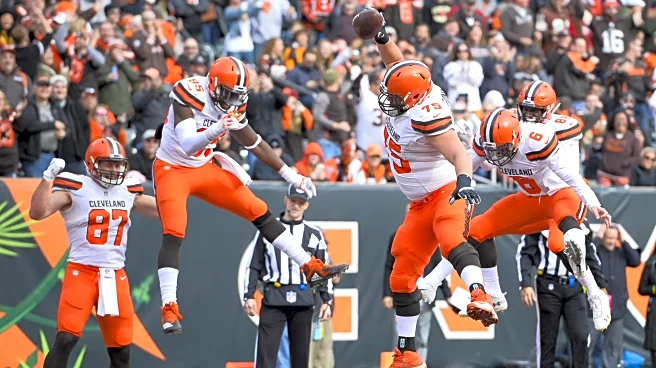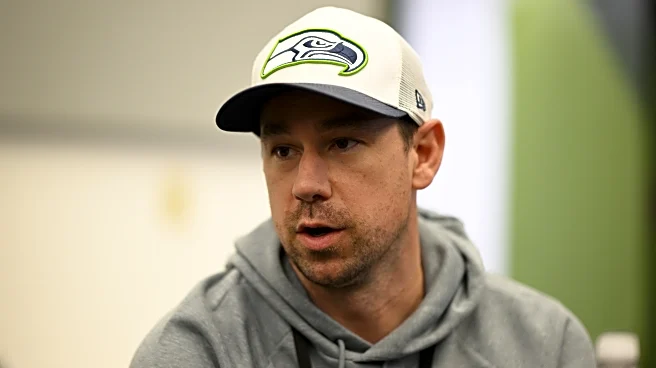What's Happening?
Merriam-Webster is updating its Collegiate Dictionary to include approximately 5,000 new words, many of which are popular among Gen Z. This update includes terms like 'rizz,' 'dad bod,' and 'doomscroll,' reflecting the evolving language used by younger generations. The dictionary, first published in 1898, serves as a resource for college students and professionals. The new edition also includes terms like 'teraflop' and 'dumb phones,' highlighting technological advancements and cultural changes. Despite declining sales due to the prevalence of online searches, Merriam-Webster's president, Greg Barlow, emphasizes the importance of preserving language and culture through physical dictionaries.
Why It's Important?
The inclusion of Gen Z terminology in a major dictionary signifies the recognition of cultural and linguistic shifts driven by younger generations. This update not only reflects changes in everyday language but also acknowledges the influence of digital culture and technology on communication. By documenting these terms, Merriam-Webster helps preserve the evolving lexicon, providing a historical record of language development. This move may also influence educational and professional settings, where understanding contemporary language is increasingly important.
What's Next?
The new edition of the Collegiate Dictionary is set to be released on November 18. As language continues to evolve, future updates may include additional terms that emerge from digital and cultural trends. The ongoing adaptation of dictionaries to include contemporary language highlights the dynamic nature of communication and the need for resources that reflect current usage. This trend may encourage other dictionary publishers to similarly update their content to remain relevant.










